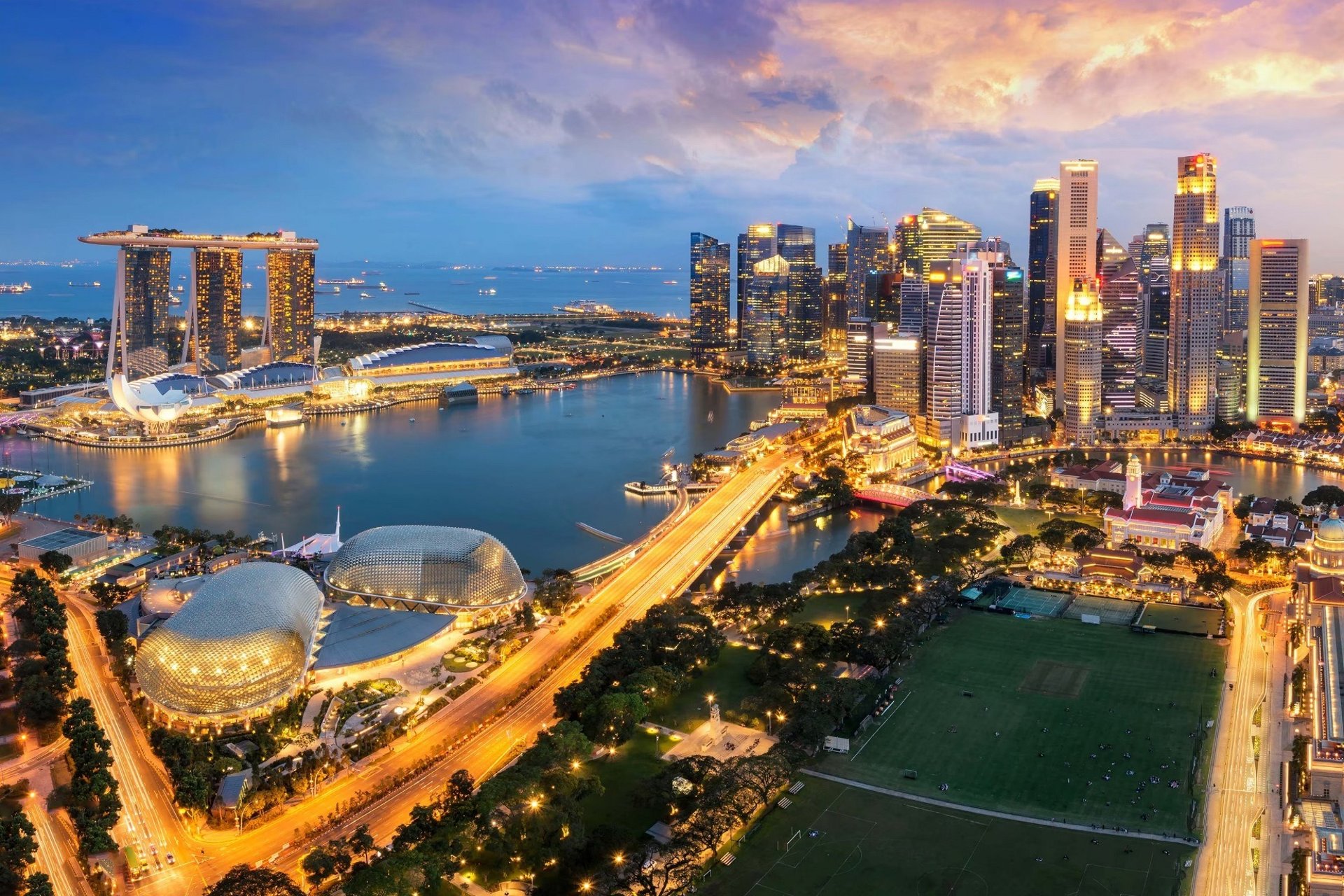
About Singapore
Singapore is a small but highly developed city-state in Southeast Asia, known for its impressive economy, high standard of living, and diverse cultural mix.
It is located at the southern tip of the Malay Peninsula, just 1 degree north of the equator. It's an island city-state, made up of one main island and over 60 smaller islands.
Singapore
History
Early History:
i) 2nd Century CE: Known as Temasek, a trading post mentioned in Chinese and Javanese records.
ii) 14th Century: Renamed Singapura (Lion City) by Sang Nila Utama, a prince from Palembang who claimed to have seen a lion on the island.
Colonial Era:
i) 1819: Sir Stamford Raffles, representing the British East India Company, established a trading post in Singapore.
ii) 1824: The British gained full control; Singapore became part of the Straits Settlements with Malacca and Penang.
- Late 1800s–1900s: Became a major port and commercial hub due to its strategic location along key trade routes.
World War II:
i) 1942: Singapore fell to the Japanese during WWII — a major blow to British prestige. Renamed Syonan-to during occupation.
ii) 1945: British forces returned after Japan’s surrender.
Path to Independence:
i) 1959: Gained self-government; Lee Kuan Yew became the first Prime Minister.
ii) 1963: Joined Malaysia (along with Malaya, Sabah, and Sarawak).
iii) 1965: Separated from Malaysia and became an independent republic on August 9, 1965.
Modern Singapore:
i) Under Lee Kuan Yew’s leadership (1959–1990), Singapore transformed from a developing port city to a global economic powerhouse.
ii) Known for its strong governance, multicultural harmony, clean and efficient infrastructure, and economic success in industries like finance, tech, and trade.


Economy
Singapore has one of the world’s most advanced and competitive economies. It is a global hub for finance, trade, and transport. The country has a very high GDP per capita, and its economy is supported by major sectors like electronics, manufacturing, banking, and tourism.







Offshore Jurisdiction
Singapore is a popular jurisdiction for offshore companies due to its business-friendly environment, strong regulatory framework, and strategic location in Asia. Here are some key points about setting up an offshore company in Singapore.
Key Features of Singapore Offshore Jurisdiction
3. Ease of Incorporation
i) The process of setting up an offshore company is relatively quick, often taking about 1-2 weeks. All you need is a local director, a registered office address, and a company secretary.
ii) No minimum capital is required, although at least $1 is needed to get started.
1. Business-Friendly Environment
i)Tax Advantages:
Singapore offers competitive corporate tax rates, with a flat tax rate of 17%. There are also exemptions for new companies in the first 3 years, allowing for significant tax savings.
ii) No Capital Gains Tax: Singapore does not impose capital gains tax, making it an attractive location for investors.
iii) Double Taxation Avoidance Agreements:
Singapore has signed numerous treaties to avoid double taxation with countries worldwide, making it an ideal base for international businesses.
5. Banking and Finance
i) Singapore’s banking system is well-regulated, and offshore companies can easily open corporate bank accounts with local or international banks.
ii) There are no restrictions on foreign ownership of a company in Singapore.
2. Types of Offshore Companies
i) Private Limited Company (Pte Ltd): This is the most common structure for foreign investors and businesses, offering limited liability, tax benefits, and ease of management.
ii) Branch Office: A branch office is considered an extension of the foreign parent company, meaning the parent company will be fully liable for the branch’s activities.
iii) Representative Office: This is a temporary structure for companies that want to explore market opportunities but are not yet ready to establish a full-fledged business presence.
4. Regulations
i) The Accounting and Corporate Regulatory Authority (ACRA) is the governing body that oversees company formation and compliance in Singapore.
ii) Companies are required to keep proper financial records and file annual returns, although they may qualify for exemptions depending on their size and business activity.
6. Corporate Governance
i) Singapore requires at least one local resident director, but the company can also appoint foreign directors, provided the legal requirements are met.
ii) The company must have a local company secretary who is a Singapore resident.
7. Confidentiality
While Singapore ensures a high level of transparency and compliance, it offers reasonable levels of privacy for company owners. Shareholder details are not publicly disclosed, though the company must maintain records for internal purposes.


All Rights Reserved © 2025
Address
44, Boulevard Victoria Avenue,
Port-Louis, 11403, Mauritius
Contacts
Tel 1: (+230) 5444 6695
Tel 2: (+230) 5780 2621
Email: info@worldfinconsult.com
AAll Rights Reserved © 2025
Quick Links


